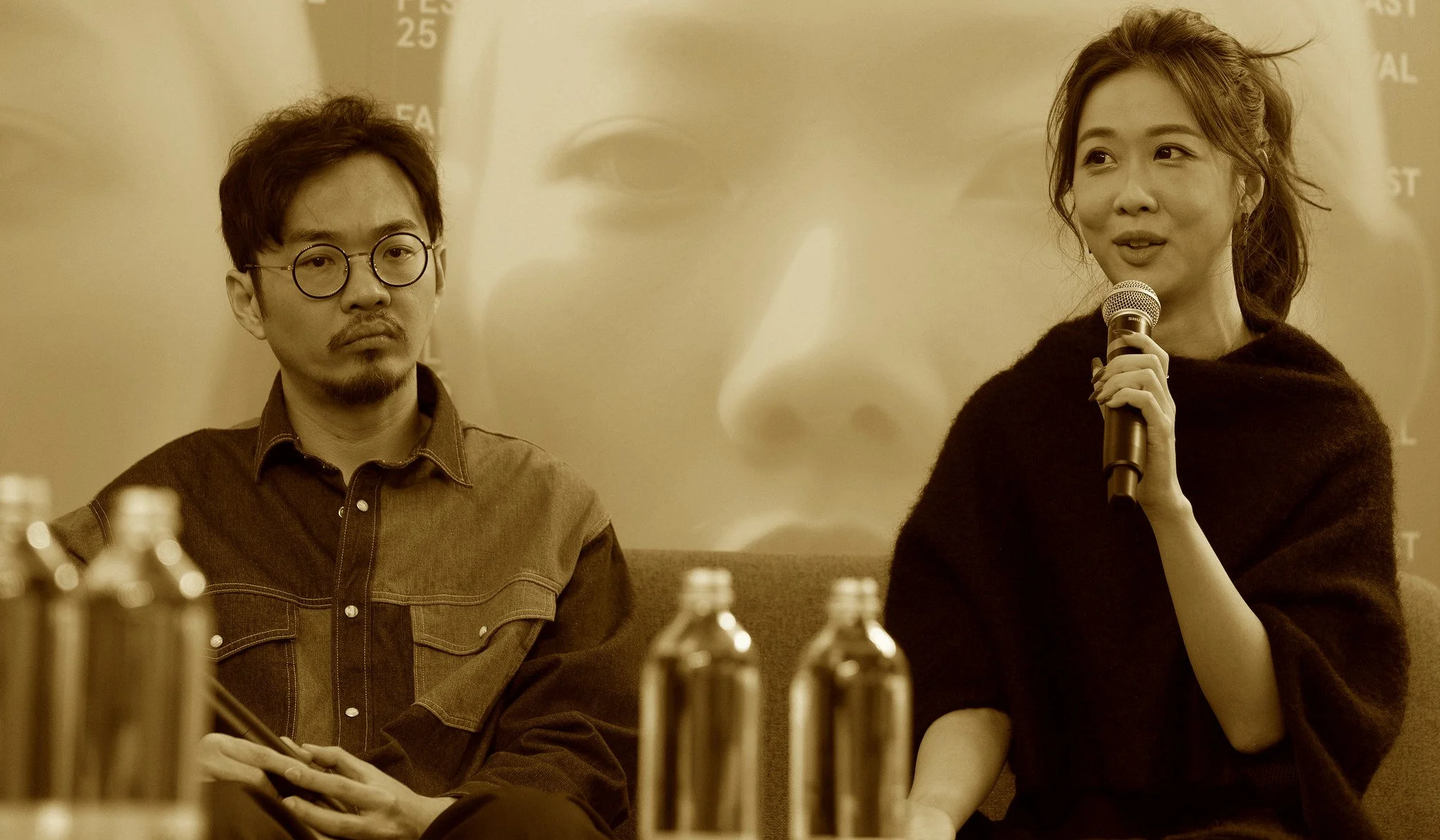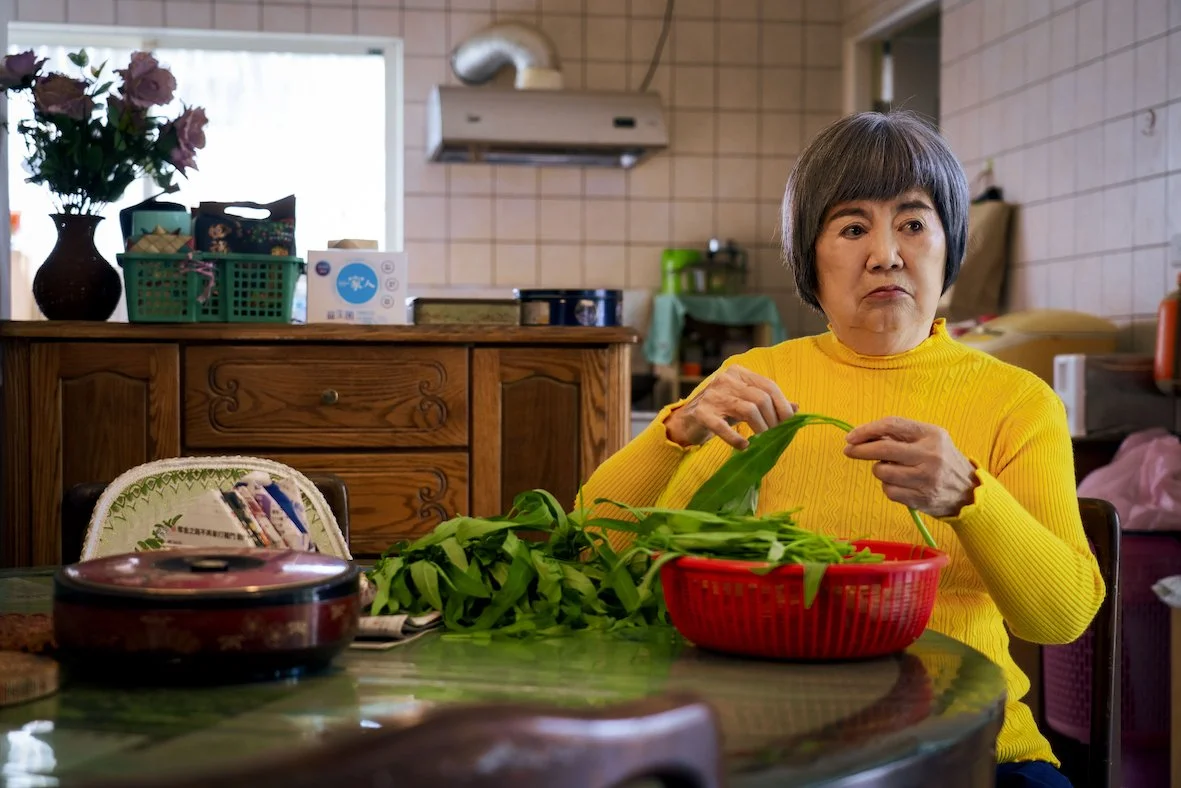Who’s to Say?
Are f-bombs the path to better LGBTQ+ equality? Should director Cheng Wei-hao be dropping them?
There’s a good joke in the middling What’s Love Got to Do with It? where Lily James’s documentary filmmaker Zoe has her film about her Pakistani friend’s assisted marriage canned by her distributors because “White director, sorry!” It’s played for laughs, and it’s a minor point in the story, but it’s funny because it’s increasingly true. Making a movie these days requires a great deal of room-reading, and rightly so. Who holds the licenses to tell certain stories, say about rape or racism, has always been a question for artists – Pedro Almodóvar has never bungled a female-centred film – but it’s never been seriously considered until now. But does the type of story make licenses easier to get?
Maybe, if you ask Taiwanese director Cheng Wei-hao, best known for The Tag-Along and about to be better known for Marry My Dead Body | 關於我和鬼變成家人的那件事 (out now). The odd couple in that buddy comedy consists of a homophobic cop (Ming-han) and his new partner – a dead guy (Mao-mao) who’s also gay. The film rides a fine line between offensive and funny, and the only thing that saves it is Cheng’s sincerity. Marry My Dead Body exists to make it clear LGBTQ+ people have the same right to get married as the rest of us. But the volume of gay slurs and retrograde imaging is problematic.
“I agree,” Cheng starts, sitting in the press room at Udine’s Teatro Nuovo during FEFF25. MMDB screened to a packed house on April 23, one uproarious with laughter, similar to its reception at HKIFF a week or so earlier. “At the beginning of the story the portrayal of the gay guys is a little on the stereotypical side. And yes, those could be considered negative images. But by the end, as you pointed out, it’s necessary for understanding the end result; you need the negative to turn into a positive. If Mao-mao is the type of gay guy that everybody is comfortable with there’s no need for the movie. The point is to make people recognise their misconceptions.”
Cheng admits there have been some negative reactions from the LGBTQ+ community, but he’s quick to point out that, perhaps surprisingly, most of the feedback has been distinctly positive. He’s also quick to add the film isn’t really for the gay community. It’s for everyone else who might need a slap upside the head.
“Though we were one of the earliest countries in the region to legalise same sex marriage, deep down, culturally, Asia is still very conservative,” says executive producer Jin Pai-lunn. “A lot of people will never understand or accept being gay. They’re all Ming-han. So we used those negative elements as a hook to get those people to come to the theatre, and if even one of them gets to the same destination as Ming-han then it’s a win.”
Jin then switches gear, noting how Taiwan’s local box office has been in a rut for a few years, and is losing its sheen and failing to capture anyone’s attention. She laments the lack of a massive hit on the level of Wei Te-sheng’s GOAT Cape No. 7, which raked in NT$530 million (HK$135 million) in 2008, his Seediq Bale duology a few years later (NT$790), or Giddens Ko’s You Are the Apple of My Eye (NT$425 million, 2011) in recent memory. Cheng had a modest hit with The Tag-Along 2 in 2017 (NT$105 million), and he applied his magic touch to MMDB, which earned almost NT$50 million in its first three days in cinemas last February. Whatever its faults, it has buzz, and to say it’s made a splash is an understatement.
“No one’s made a movie that big numbers actually went to see recently. A lot of filmmakers have given up and changed careers because they can’t make a living,” Jin goes on. “The fact that Marry My Dead Body set records is unheard of over the last 10 years. We’re just so happy people are actually going to the cinema and talking about it. Even if they talk badly about it, it’s a good thing. So suitability is irrelevant. Right now, at this moment, this movie is having an impact.”
There’s that word. Suitability. Jin is thrilled with the response and what it means for the industry, so she’s willing to push off the issue of “Should we” for later in favour of building a strong audience foundation. Cheng, on the other hand, doesn’t think he should weigh himself down with the baggage of being right or wrong for the material. If he can send a positive message and make a point for tolerance, then mission accomplished. And, ultimately, it’s a buddy cop movie. His job is to be funny.
“Oh it’s a buddy cop comedy for sure, and a major influence was Hong Kong buddy movies. It came from the ‘foon hei yuen ga’ – ‘happy enemy’ tradition. That was the main influence when I started working on the film. And if I can have an impact, through comedy, and send people home understanding a little more about the LGBTQ community, great.” He pauses for a second. “If I worried too much about whether I ‘should’ I’d never finish a film.” — DEK
Where we were
Far East Film Festival 25 • www.fareastfilm.com
Udine, Italy • April 21-29, 2023
Now showing in Hong Kong





